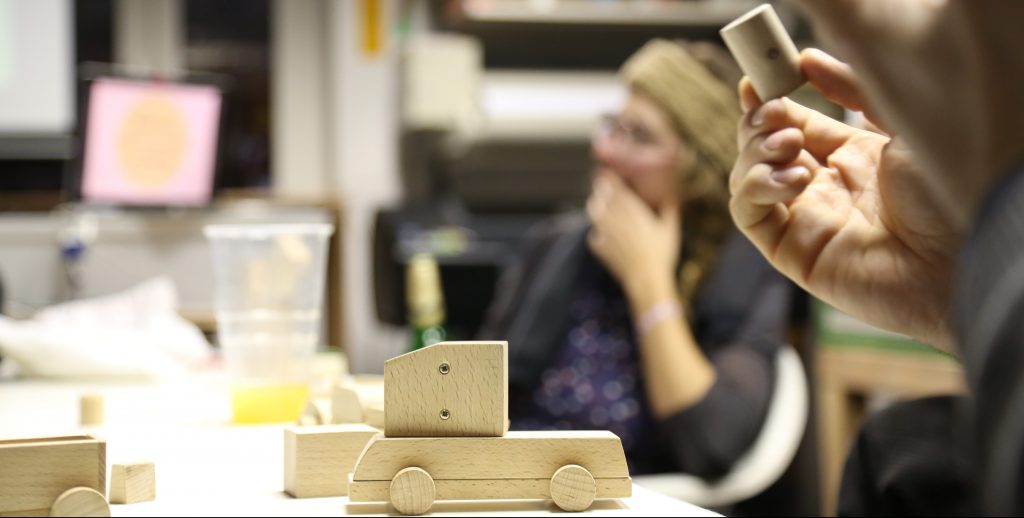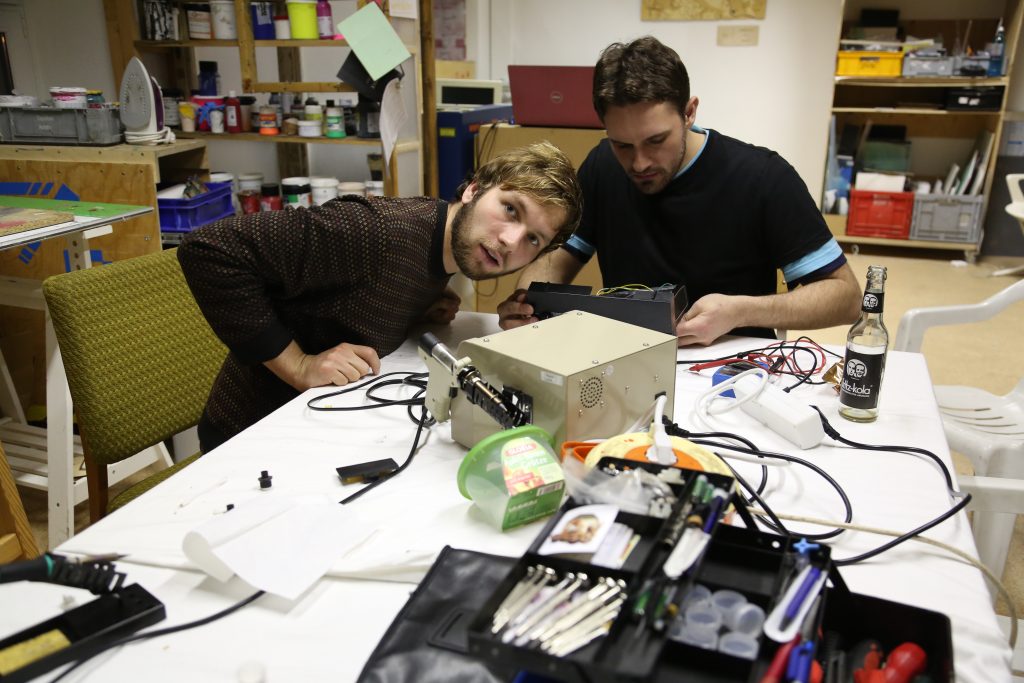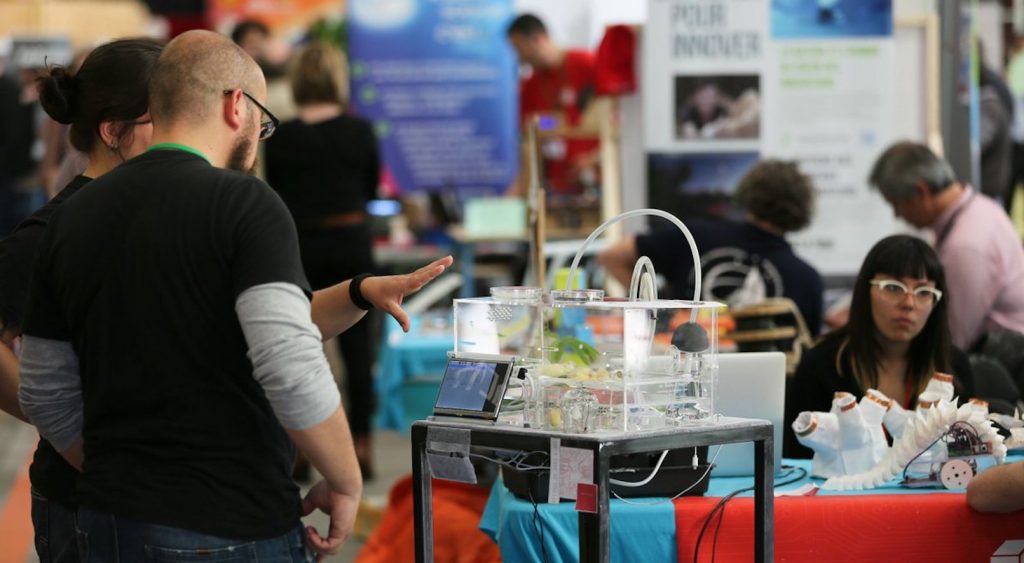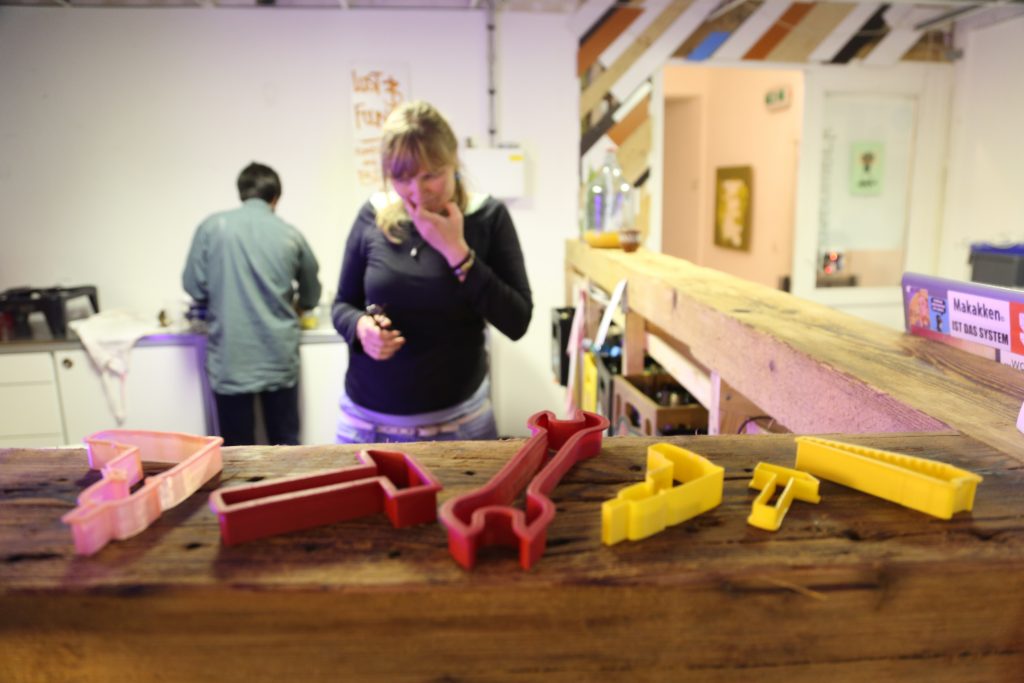What can "open workshops" do for the transformation of urban neighbourhoods?
Client
Institute for Ecological Economy Research IÖW, University of Bremen, Fraunhofer Umsicht, Fraunhofer ISI, Association of Open Workshops (VOW)Project period
February 2014 — November 2018Services
Analysing social movementsWorking method
Online survey, case studiesProduct
Empirical report, guidelines, policy reportOur expertise
Bottum-up analysis, commons, spatial developmentPartner
IÖW; Fraunhofer Umsicht; University of Bremen, VOWLink
Downloads
Report / Publication / Publication
New players for neighbourhood development
Multiplicities analyses value creation processes at almost 500 open workshops in the BMBF project COWERK. As part of the BMBF’s COWERK research alliance with Fraunhofer UMSICHT, the IÖW and the University of Bremen, Multiplicities has investigated the potential of decentralised production and the positive effects such places of collaborative work have on neighbourhoods.
How can we plan cities sustainably when the demand for consumer goods is growing and the movement of goods is increasing? And how can cycles be developed in which resources are conserved and waste is reduced? All over Germany, initiatives are currently emerging that promise very practical answers to these questions: being creative, repairing and making things yourself is the motto of over 450 open workshops across the country.
Using new technologies such as 3D printing, such spaces are able to produce small series themselves, manufacture spare parts and repair everyday appliances that would otherwise be disposed of. Multiplicities explores the potential of decentralised production and shows what effects these places of collaborative work have on neighbourhoods. An online survey enabled us to gain key insights into this topic for the first time.
Project components




Related projects
Location development through knowledge transfer
Students at the Berlin University of Applied Sciences work in teams to solve problems posed by regional companies.
Client: Hochschule Technik und Wirtschaft (HTW) Berlin, finanziert durch die IHK Berlin
Creative impulses for disadvantaged neighbourhoods
Together with Belius GmbH, Multiplicities presents an expertise on neighbourhood development in the Brunnenviertel (Berlin).
It addresses creativity as a potential for inner-city development and presents a mapping of development opportunities through new utilisation and social forms.
Client: BUWOG – Meermann GmbH
SME-creative – How to promote innovation properly?
Together with Prognos AG, Multiplicities analyses funding models in Saxony-Anhalt and Thuringia on behalf of the BMWi.
Client: BMWi (Federal Ministry for Economic Affairs and Energy) Berlin
What do young people expect from their city in the future?
Multiplicities organises future workshops as part of the BMBF project "Future urban spaces for young people". How do young people perceive their city?
Client: Bundesministerium für Umwelt, Naturschutz, Bau und Reaktorsicherheit (BMUB), Berlin
Collaboration as a driving force in Brandenburg
The EU project COBRA tested collaborative forms of work and new partnerships on the labour market in rural Brandenburg.
Client: Ministry of Labour, Social Affairs, Women and Family of the State of Brandenburg (European Social Fund)